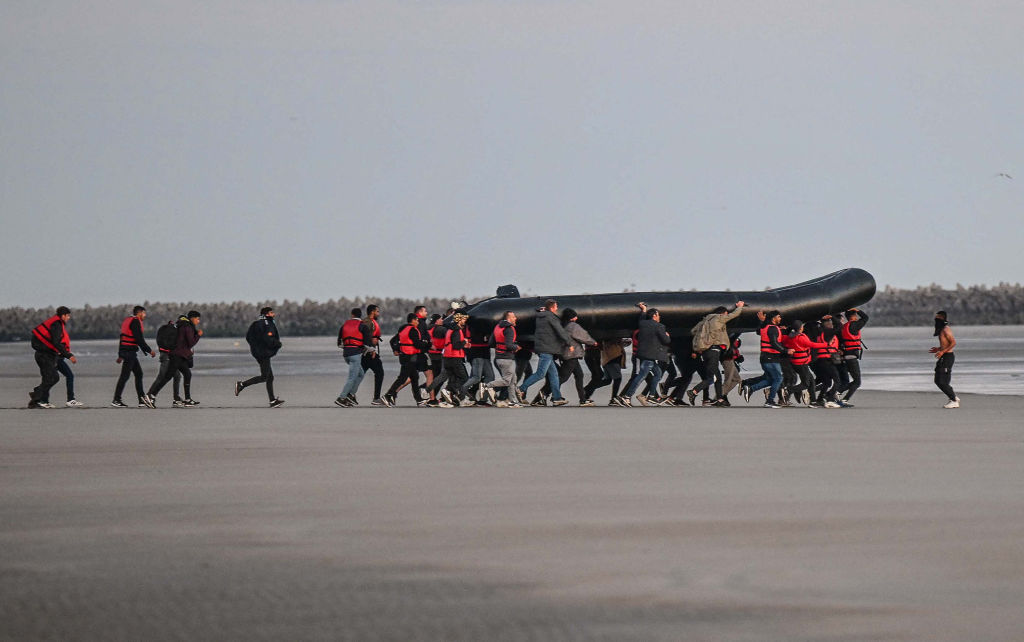How the Albanian mafia corrupted Europe

In May 2000 a French newspaper published an article which declared that ‘The Albanian mafia is corrupting Europe’. Le Parisien reported on an official Interpol document that described a ‘perfectly organised’ criminal network emanating from Albania, with its tentacles spreading west. Drugs, prostitution, gun-running and illegal immigration were the pillars of this syndicate, which had strong links with the Italian and Turkish mafias.
The Interpol report noted that 40 per cent of the heroin dealers arrested in Austria the previous year were Albanian, and Le Parisien reminded its readers that recently prostitution networks in the cities of Nice, Toulouse, Strasbourg, Metz and Nancy had been run by the Albanian mafia.
A month after the newspaper report a book was published in France called The Albanian Mafia – a menace for Europe. It was a disturbing portrayal of a criminal enterprise that ‘even inspires great respect among the powerful mafia families of Sicily.’
While the 1990s had not been a good decade for the Sicilian mafia, pursued ferociously by the Italian authorities after the assassinations in 1992 of two high-ranking judges, it was a profitable time for Albanian criminals because of the war in Kosovo. A member of the American diplomatic corps in Kosovo told the book’s authors that in return for money and contraband, the Kosovo Liberation Army (KLA) had bestowed on the mafia ‘political legitimacy’.
That helped the Albanian mafia enlarge its sphere of operations so that by 2000 it controlled more than 70 per cent of the heroin market in Austria, Germany and the Scandinavian countries, pimped out thousands of prostitutes across Europe and organised highly lucrative burglaries, often carried out by former policemen or veterans of the KLA. ‘In France the problem is still in its infancy but its development is imminent,’ warned the authors.
The problem did indeed mature in the two decades that followed, and accelerated in 2010 when the Council of the European Union approved visa-free travel to the EU for Albanian citizens, a year after the country applied to join the bloc.
Albanians soon headed west, first to Germany and then, when Berlin began rejecting their demands en masse, to France. In 2017 there were 7,630 asylum applications in France – a 66 per cent increase on 2016 – prompting the then-Minister of the Interior, Gérard Collomb, to visit Tirana in December that year in an attempt to persuade the Albanian government to strengthen its controls on people leaving the country.
His diplomatic foray proved futile. In 2018 asylum applications rose to 8,261, of which only 6.5 per cent were successful (in the UK 55 per cent of Albanian applications are successful). By now the French government understood who was behind the exodus and a report published by the Ministry of Justice in the autumn of 2018 highlighted the role being played by the mafia.
The mafia’s principal industries were burglary, drugs and migrant smuggling. The report gave some examples. Five Albanians between November 2017 and October 2018 carried out 98 burglaries in 11 regions of France, netting a haul of €423,000.
Meanwhile, its drug trade was based out of cities in eastern France. Business was booming and the police in France were working flat out to smash well-organised heroin and cocaine networks run by Albanians.
Meanwhile the French Ministry of Justice described illegal immigration as a burgeoning branch of the Albanian mafia. In 2018 the French dismantled 18 Albanian smuggling networks and made 83 arrests, but despite their endeavours the mafia continued to traffic people from Asia and the Middle East into Europe, ‘notably to Great Britain’.
Most of the smuggling at this time was in lorries but as the British and French authorities tightened security at Channel ports the Albanians began looking at alternatives. Why not boats from remote stretches of coastline?
The first crossings were made in the autumn of 2018; just a few hundred at first, but once the mafia realised how easy it was, and how benevolent the British authorities were to those who came ashore – in large part because of Theresa May’s Modern Slavery Act of 2015 – a flotilla of boats began to cross the Channel.
This point was made last week by Dan O’Mahoney, Clandestine Channel Threat Commander, to the Home Affairs Select Committee: ‘The rise has been exponential and we think that is, in the main, due to the fact that Albanian criminal gangs have gained a foothold in the north of France,’ he explained.
In 2019, 1,843 migrants came across by boat, in 2020 8,466, and this year 39,430 have made the crossing up to the end of October. Among that number are 12,000 Albanians, 10,000 of whom are single men, most between 18 and 35. Some may intend to seek legitimate employment, but many are in Britain to work for the mafia.
They’ve set up a thriving business empire on continental Europe and now they want to do the same in Britain. They are already well on their way. As the Sun reported in 2019, Albanians have accomplished ‘a near total takeover of Britain’s £5 billion cocaine industry.’
In a newspaper column this week the MP David Davis said that in the last two years police in his Humberside constituency have ‘run six operations targeting groups linked to Albanians suspected of offences ranging from drug crime to fraud’. Davis believes the crisis must be tackled at its source, in Albania.
It should and if their government refuse to cooperate the EU should re-examine Albania’s candidature because Le Parisien in 2000 was right: the Albanian mafia is corrupting Europe. Perhaps it already has
No comments:
Post a Comment